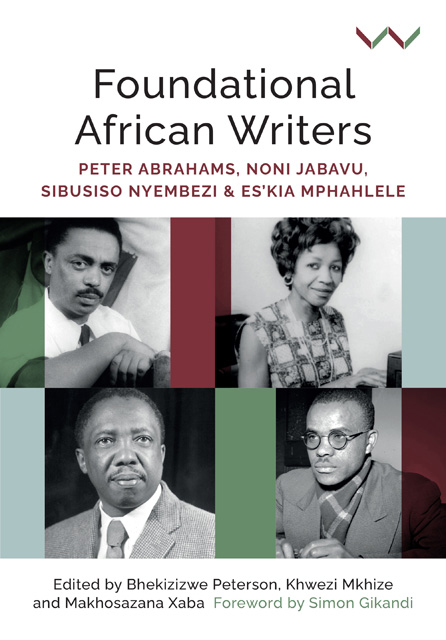Book contents
- Frontmatter
- Contents
- List of illustrations
- Foreword
- Acknowledgements
- Tribute to Professor Bhekizizwe Peterson
- Introduction
- Part I Remapping and Rereading African Literature and Cultural Production
- Part II South Africa and Fugitive Imaginaries
- Part III In the Eye of the Short Century: Diaspora and Pan-Africanism Reconsidered
- Contributors
- Index
8 - In the Shadows of the British Empire: Nyembezi’s Inkinsela YaseMgungundlovu
Published online by Cambridge University Press: 01 September 2022
- Frontmatter
- Contents
- List of illustrations
- Foreword
- Acknowledgements
- Tribute to Professor Bhekizizwe Peterson
- Introduction
- Part I Remapping and Rereading African Literature and Cultural Production
- Part II South Africa and Fugitive Imaginaries
- Part III In the Eye of the Short Century: Diaspora and Pan-Africanism Reconsidered
- Contributors
- Index
Summary
Sibusiso Nyembezi’s Inkinsela YaseMgungundlovu is one of the significant texts in isiZulu fiction that explores the contradictions of the colonial project. Nyembezi’s anticolonial satire is consistent with earlier works by Africanlanguage writers which registered discontent with the devastating effects of colonialism on Africans, their environment and their culture. The works of Azariel Sekese and Albert Nqheku for Sesotho literature, A.C. Jordan and S.E.K. Mqhayi for isiXhosa literature, and Petros Lamula and B.W. Vilakazi for isiZulu literature are examples of critiques of colonialism that precede Inkinsela. Nyembezi’s reflections are not just restricted to the Manichean dynamics of colonial culture and its civilisational narratives. He was also interested in exploring the contradictions that afflicted the African elite in the colonial project. In the novel, Nyembezi connects his assessment of the conflicted aspirations of colonial subjects to their imitation of the sensibilities of Englishness. The latter is crystallised in the admiration expressed by Ndebenkulu − the thieving ‘Esquire’ whose figure symbolically links to the colonial matrix of power − for the British empire’s repertoires of subjugation and terror. Nyembezi uses Rabelaisian laughter, the complex irony that results from an uncritical embodiment and performance of English sensibilities. Under Nyembezi’s pen such Africans become targets for satirical critique of and laughter at their criminality, depravity and lack of compassion, all of which emanate from their uncritical acceptance of everything English. This uncritical acceptance of English values is met with retributive violence on the part of an African community which seeks to redress the symbolic and physical violence of the colonial order.
Nyembezi’s satire highlights a number of contradictions amongst the African elite, and in particular two conundrums resulting from their appropriation of Englishness. The first concerns the internal contradictions of colonial subjectivity, particularly as discussed by Daniel Kunene. Kunene bemoans Africans’ mimicry of their erstwhile colonial masters to the extent that they used their new identity to subjugate and exploit ordinary Africans. The second conundrum is the ease with which, at the ideological level, colonial frames of social subjectivity are regenerated even long after the passing of official British colonialism. Interestingly, Nyembezi also notes and makes symbolic use of the written word as an imperial instrument.
- Type
- Chapter
- Information
- Foundational African WritersPeter Abrahams, Noni Jabavu, Sibusiso Nyembezi and Es'kia Mphahlele, pp. 171 - 194Publisher: Wits University PressPrint publication year: 2022



